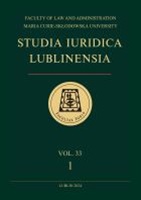Nacjonalizm jako manipulacja zbiorowymi wyobrażeniami (stereotypami) o swoich i obcych w „Megalomanii narodowej” Jana Stanisława Bystronia
Nationalism as a Manipulation of Collective Imaginaries (Stereotypes) of One’s Own and Strangers in Jan Stanisław Bystroń’s “National Megalomania”
Author(s): Marta BaranowskaSubject(s): Political history, Social history, Social Theory, Nationalism Studies
Published by: Wydawnictwo Naukowe Uniwersytetu Marii Curie-Sklodowskiej
Keywords: national megalomania; stereotypes; collective narcissism; ressentiment; nationalism; Bystroń;
Summary/Abstract: The research purpose of the article is to analyse Jan Stanisław Bystroń’s research on collective imaginaries of one’s own people and strangers, on the basis of which he formulated an original perspective on the perception of nationalism. The research question is as follows: What is nationalism in the views of Bystroń? He was one of the first scholars to point out that nationalism boils down to the manipulation of collective imaginaries that are the source of prejudice. His National Megalomania (1924) can be considered a forerunner of research on stereotypes. The research purpose of the article is also to point out that his comments on national megalomania preceded the theories on collective narcissism formulated in the 1970s by Erich Fromm and Theodor W. Adorno. They are to this day analysed in scholarly literature, also in the context of research on nationalism. These analyses indicate that the source of narcissism is ressentiment. This concept of Friedrich Nietzsche is also used in theories about nationalism, so it was also included in the analysis of nationalism in this article. Bystroń’s research was interdisciplinary in nature, which allowed him to point out a new and, in many points, pioneering perspective on the perception of nationalism. Research on his work also requires an interdisciplinary approach. For this reason, the study uses references to theories from a wide spectrum of social and humanistic research. As a result, it was possible to interpret Bystroń’s contribution to the study of nationalisms from a broader perspective.
Journal: Studia Iuridica Lublinensia
- Issue Year: 33/2024
- Issue No: 1
- Page Range: 29-44
- Page Count: 14
- Language: Polish

